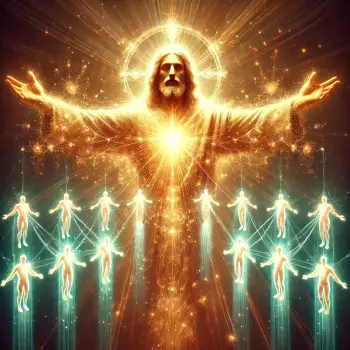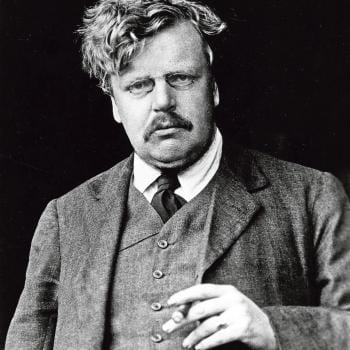Once we grasp that Jesus was no ordinary teacher and healer but Yahweh moving among his people, we can begin to understand his words and actions more clearly. If we survey the texts of the Old Testament—and the first Christians relentlessly read Jesus in light of these writings—we see that Yahweh was expected to do four great things. He would gather the scattered tribes of Israel; he would cleanse the Temple of Jerusalem; he would definitively deal with the enemies of the nation; and, finally, he would reign as Lord of heaven and earth. The eschatological hope expressed especially in the prophets and the Psalms was that through these actions, Yahweh would purify Israel and through the purified Israel bring salvation to all. What startled the first followers of Jesus was that he accomplished these four tasks but in the most unexpected way.
When Jesus first emerged, preaching in the villages surrounding the Sea of Galilee, he had a simple message: "The kingdom of God is at hand. Repent, and believe in the Gospel" (Mk 1:15). Oceans of ink have been spilled over the centuries in an attempt to explain the meaning of "Kingdom of God," but it might be useful to inquire what Jesus's first audience understood by that term. N. T. Wright argues that they would have heard, "the tribes are being gathered." According to the basic narrative of the Old Testament, God's answer to human dysfunction was the formation of a people after his own heart. Yahweh chose Abraham and his descendants to be "peculiarly his own," and he shaped them by the divine law to be a priestly nation. God's intention was that a unified and spiritually vibrant Israel would function as a magnet for the rest of humanity, drawing everyone to God by the sheer attractive quality of their way of being. The prophet Isaiah expressed this hope when he imagined Mount Zion, raised high above all of the mountains of the world, as the gathering point for "all the tribes of the earth." But the tragedy was that more often than not Israel was unfaithful to its calling and became therefore a scattered nation. One of the typical biblical names for the devil is ho diabalos, derived from the term diabalein (to throw apart). If God is a great gathering force, then sin is a scattering power. This dividing of Israel came to fullest expression in the eighth century BC, when many of the northern tribes were carried off by the invading Assyrians, and even more so in the devastating exile of the sixth century BC when the Babylonians destroyed Jerusalem and carried many of the southern tribes away. A scattered, divided Israel could never live up to its vocation, but the prophets continued to dream and hope. Ezekiel spoke of Israel as sheep wandering aimlessly on the hillside, but then he prophesied that one day Yahweh himself would come and gather in his people.
Now we can begin to understand the behavior of the one who called himself "the good shepherd" (Jn 10:11). As so many contemporary scholars have emphasized, Jesus practiced open table fellowship, serving as host for many who would normally be excluded from polite society: the public sinner, the prostitute, the handicapped, the tax collector. At the very place where, in his time as well as ours, the stratifications and divisions of society were often on clearest display, he was making possible a new kind of social space, one marked by compassion and forgiveness. It is important to note that he was not simply exemplifying the generic virtue of "inclusivity" so valued today; he was acting in the very person of Yahweh gathering in his scattered children. This helps to explain why he healed so many. In the society of Jesus's time, physical illness was typically construed as a curse, and in many cases sickness or deformity prevented one from participating fully in the life of the community, especially in common worship. Curing the blind, the deaf, the lame, and the leprous, Jesus was Yahweh binding up the wounds of his people and restoring them to communion.
Excerpted from Catholicism by Robert Barron. Copyright 2011 by Father Robert Barron. Excerpted by permission of Image, a division of Random House, Inc. All rights reserved. No part of this excerpt may be reproduced or reprinted without permission in writing from the publisher.
For more conversation on the new book Catholicism, visit the Patheos Book Club here.




